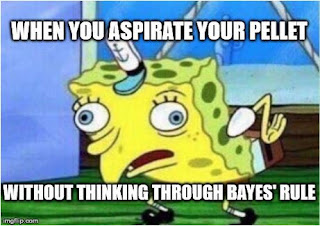I have a UROP! 20.109 will be a breeze...right?
Coming into MIT, I had no experience working in a biological lab. Starting in freshman fall, I was determined to get up to speed by participating in UROPs and getting the authentic biological engineering student experience. By the end of my freshman year, I was proficient at pipetting small volumes, could successfully obtain an ice bucket without asking my supervisor for help, and was clueless in my UROP only half of the time (as opposed to all the time when I first got started).
When it came time to take 20.109, I was definitely nervous, but had at least an inkling of confidence that my few months spent pipetting and plating and transfecting would come in handy. This misconceived notion was buried right after finishing the lab work for M1D1 more than 30 minutes after 5PM (huge thanks to the amazing teaching faculty for staying way after 5 while Julia and I struggled). At 5:30, Julia and I moved to an empty classroom and struggled on figuring out the math for calculating backbone / insert concentrations for the next hour. It then became extremely apparent to me that 20.109 would be one of the most challenging classes I will take in my career as a Course 20.
Every day in lab seems to bring about its own set of obstacles and difficulties, but it's also been really valuable in guiding my thinking about science and research as an individual. I think the most stereotypical UROP experience involves coming into lab, pipetting for three hours according to specific instructions from your supervisor, and then leaving without putting too much thought into what you just did. I'm sure everyone's UROP experiences vary, but as someone who had never done research at all before, I thought this was how it was supposed to be. The value in 20.109 is bringing the research experience full circle: from forming a hypothesis to experimenting and optimizing to analyzing data, I was able to implement my own thoughts and opinions into the lab work I did instead of just blindly following instructions. While this resulted in much, much more work, it also allowed me to become intimately familiar with the ins and outs of what I did in lab - something I was not able to grasp very well when I first started working in labs on campus but am slowly beginning to wrap my head around :'')
Through the rest of the semester, I expect that assignments and lab work will continue to become more challenging, but I know my future self will be so thankful that I'm learning all these crucial skills now. Looking forward to honing my communication skills and (getting closer to) becoming a legitimate researcher!
-Nina Wang


Comments
Post a Comment